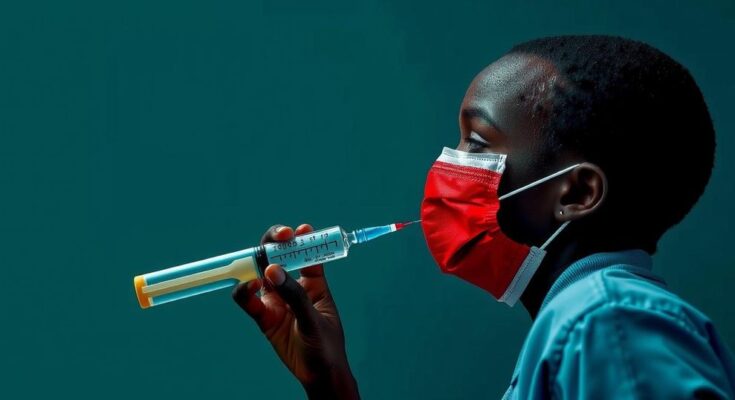The WHO reported that more than 50,000 people have been vaccinated against mpox in the Democratic Republic of Congo and Rwanda, amidst an outbreak that has claimed over 1,100 lives in Africa. Vaccination efforts are being supported by donations from the United States and European Commission, with further allocations expected to combat the virus effectively.
The Director-General of the World Health Organization (WHO) announced on Friday that over 50,000 individuals have been vaccinated against mpox (previously referred to as monkeypox) in the Democratic Republic of Congo (DRC) and Rwanda. This vaccination initiative comes in response to a severe outbreak in which more than 1,100 lives have been claimed across Africa, prompting a warning from the African Union’s health authority about the risk of a pandemic potentially more severe than COVID-19. As reported by the Centers for Disease Control and Prevention (Africa CDC), there have been approximately 48,000 reported cases of mpox in Africa since January, with a significant proportion of fatalities occurring in the DRC, the epicenter of the outbreak. The DRC has implemented a vaccination campaign as part of its strategy to mitigate the spread of the virus. Tedros Adhanom Ghebreyesus, the WHO’s Director-General, remarked, “So far, more than 50,000 people have been vaccinated against mpox in the Democratic Republic of Congo and Rwanda, thanks to donations from the United States and the European Commission.” Additionally, he noted that nearly 900,000 doses of vaccines have been allocated this week to nine nations through a mechanism established by WHO in collaboration with its partners. The WHO anticipates that by the conclusion of 2024, there will be an availability of nearly six million vaccine doses via the Access and Allocation Mechanism (AAM). Mpox, which belongs to the same viral family as smallpox, is primarily transmitted to humans through contact with infected animals as well as through close physical interactions among humans. Symptoms of mpox include fever, body aches, swollen lymph nodes, and the emergence of a rash that develops into blisters.
Mpox, formerly known as monkeypox, is an infectious disease caused by a virus that can be transmitted from infected animals to humans and can spread between humans through close physical contact. This disease has garnered increasing attention following recent outbreaks in several African countries, particularly the Democratic Republic of Congo, where it has reached alarming levels. The African continent has witnessed a spike in cases, prompting health organizations such as the WHO to mobilize vaccination efforts to prevent a widespread outbreak. Vaccination campaigns are critical in managing the spread of mpox, especially in areas identified as epicenters of the infection.
The alarming outbreak of mpox in Africa has led to considerable morbidity and mortality, with over 1,100 deaths reported. The vaccination efforts spearheaded by the DRC and Rwanda mark a significant step in combating this disease, with WHO’s allocation of vaccine doses aiding in these efforts. Continuous vigilance, resource mobilization, and vaccination will be essential to thwart the potential escalation of the mpox outbreak into a more severe pandemic.
Original Source: www.france24.com




